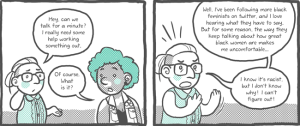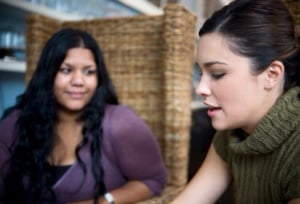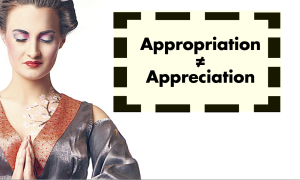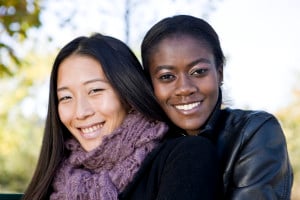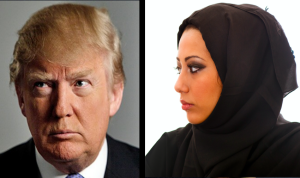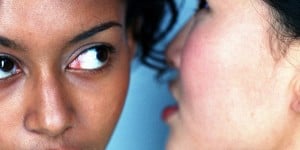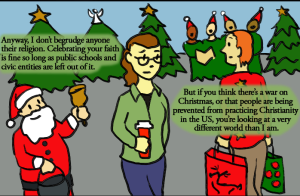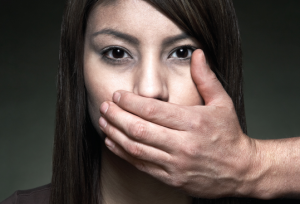
Source: Discovery House
Originally published on Daily Life and cross-posted here with the author’s permission.
By Lani Brennan, as told to Alice Williams
(Trigger Warning: Intimate partner violence, sexual assault)
I grew up in an environment where everyone was drinking and there was a lot of violence.
I got together with my partner at 17, but I’d known him my whole life. We were both using drugs and alcohol, and it started with verbal abuse. I already had low self-esteem on account of being an alcoholic and addict, so I was primed to accept that kind of treatment.
The physical abuse started with a slap, a month into the relationship, and then it became progressively worse. He hit me with whatever was lying around in the house: a hammer, baseball bat, tables, a chair. He broke my jaw in many places and slashed my leg with a broken plate so badly I have nerve damage. I still have scars all over my body, and my jaw is wired.
I felt so ashamed. I felt like it was my fault a lot of the times, like I must have deserved it; I shouldn’t have spoken to that person, said that thing.
People in the community knew what was going on, and the police were called on many occasions. When he broke my jaw, they charged him, but when it went to court, important paperwork went missing so the charges were thrown out.
If it had happened to a white woman, I’ve no doubt the police would have been more diligent. They dismissed it as “black-on-black.” They said things like “Keep it on the mish [Aboriginal mission]. Let it go.”
I felt isolated within the community, like I had nowhere to turn. I didn’t know about any of the services that could help. At one time, he barricaded me into the room and put glass around the window so I couldn’t get out, and if I had a phone, he’d break it.
The most dangerous time is when you leave – not just for you.
Whenever I tried to leave, he threatened my family. He turned up outside my grandmother’s house and kidnapped my little brother from his primary school. I knew what he was capable of, so I always went back.
He knew I was going to leave on Christmas night, and tricked me into meeting someone else, but he was waiting. He locked me in a room, tied electrical cord around my throat, stabbed me, and sexually assaulted me all night.
When he left the next day, I rang my dad, took me to the police.
[Describing it now], it’s like a violent movie. But I’m a human being with thoughts and feelings.
The police were cold. They couldn’t be bothered. They were more worried about me retracting the statement. My dad kept telling the police to go to the house which was covered in blood and get the evidence, but they didn’t.
When it came to signing the statement, I was too scared to sign it; I knew what he was capable of and didn’t trust the police to be able to protect me. I felt like I was signing my life away.
Two days later, I went into rehab for a month-and-a-half and got clean off drugs and alcohol.
It’s one thing to talk about domestic violence, but I couldn’t talk about the sexual assault. One policewoman asked about the rape. It was only through her encouragement that I began to speak about it.
It took four years for them to charge him. Police approached me numerous times saying “Why not leave it, let it go, you’re a junkie alcoholic.” So much of the abuse was my word against his [because police failed to get physical evidence from the house].
I had no idea of how court worked, and the trial was grueling. But I couldn’t give him the power. I felt like it was my responsibility to get him locked up so he couldn’t do that to anyone else again. Over and over, I told myself “the truth will set me free.”
When he was sentenced to 18 years non-parole, I finally felt physically safe, but I wasn’t safe from my own head. The more that I talk, the more I heal. He made me shut up, but today I’ve got my voice back.
In the aboriginal community, the women don’t have a lot of places to go, especially since a lot of the refuges have closed. A lot of people didn’t believe me. The black eyes they could see, but they couldn’t understand the sexual abuse.
When this is happening to you, you feel like you’re the only one. I give talks all over Australia, and I them, “You will get hit again, and it will get worse. It never gets better.”
They say, “He’s getting help, he’s changing.”
I tell them, “That’s great, but you don’t have to be there while he’s changing.”
Family violence does not have a color; it happens to rich and poor. Through schools, we need to teach kids what healthy relationships look like and how to spot bad ones. And we need to build trust with police about it, especially within aboriginal communities.
What keeps me going is the encouragement I get from the community to keep talking, that people think I’m an inspiration. I tell people I’m no better than anyone. If I can do it, anyone else can. Today I am drug and alcohol free. I have six daughters and a loving partner; every day there’s something positive.
And I know that I broke the cycle of violence in my family. It stops with me.
If you or someone you know needs help related to intimate partner violence, these resources are available:
- In the US: call the National Domestic Violence Hotline at 1-800-799-7233 (SAFE)
- UK: call Women’s Aid (for women) at 0808 2000 247 and the ManKind Initiative (for men) at 01823 334 244.
- Australia: call 1800RESPECT at 1800 737 732.
- Worldwide: visit International Directory of Domestic Violence Agencies for a global list of helplines and crisis centers.
***
To learn more about this topic, check out:
- Violence Is Not a Culturally Specific Phenomenon: How Racist Stereotypes Damage Communities of Color
- Stop Asking Already: 6 Reasons Why Intimate Partner Violence Survivors Stay in Their Relationships
- How to Recognize and Respond to Intimate Partner Violence
- How to Support a Trans Survivor of Domestic Violence
- How Our Voices Are Weapons Against Patriarchal Violence
[do_widget id=”text-101″]
Lani Brennan lives in Sydney with her partner and their six girls. Lani is a regular speaker in jails (men’s, women’s and youth), Aboriginal communities both urban and rural, teenage offender programs, and NA and AA meetings. She is an active member of the Aboriginal and Maori communities, including victims’ support care. Lani’s book, Lani’s Story, with co-author Hazel Flynn is published by HarperCollins.
Alice Williams is a Melbourne author and yoga teacher. She also writes for the Daily Life website and teaches Media Writing at the University of Melbourne. In her spare time she enjoys fixing toasters and reading about unlikely assassins. You can check her out on her website and on Twitter @AliceWillalice.
Search our 3000+ articles!
Read our articles about:
Our online racial justice training
Used by hundreds of universities, non-profits, and businesses.
Click to learn more






